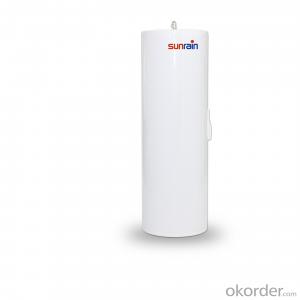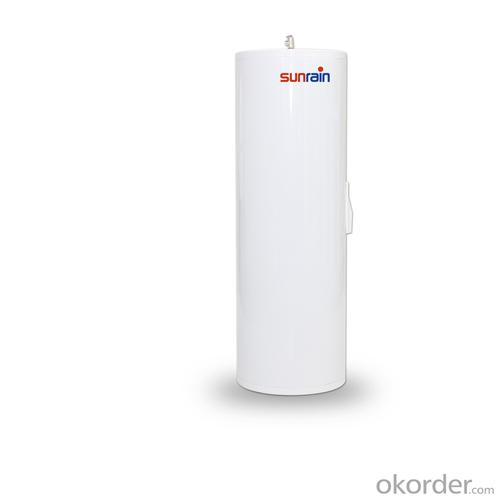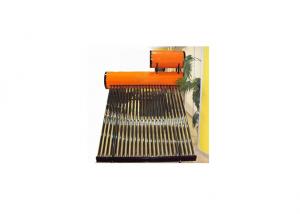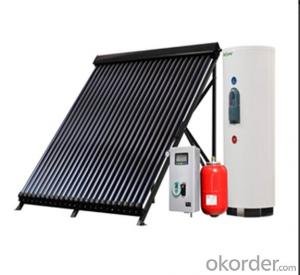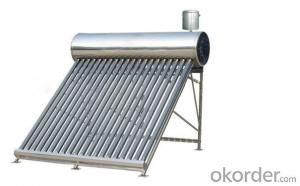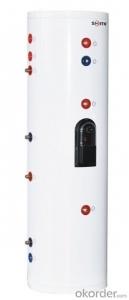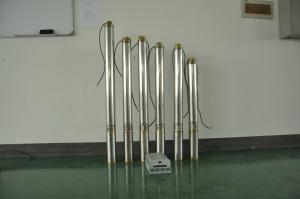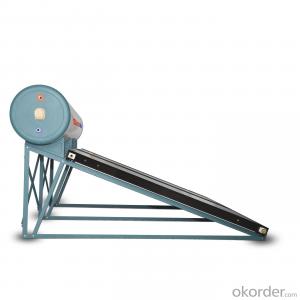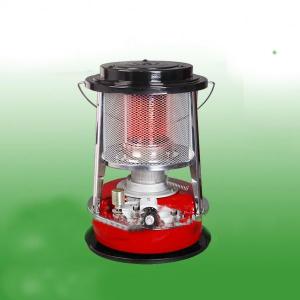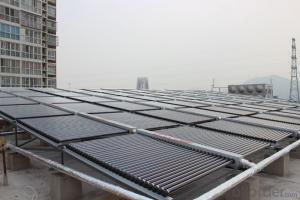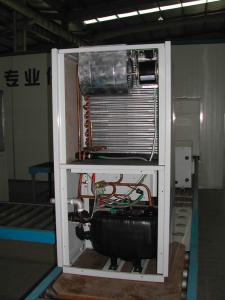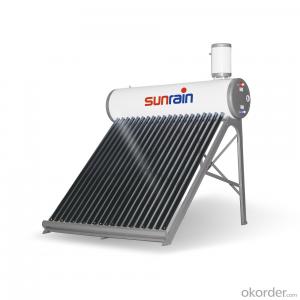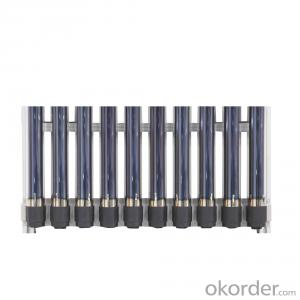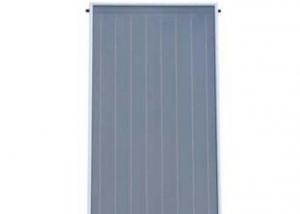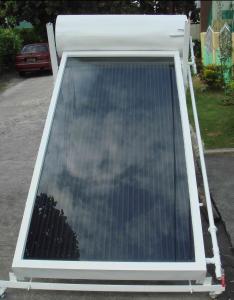Pressurized Double Tank Solar Water Heater for Chicken Coop
- Loading Port:
- China Main Port
- Payment Terms:
- TT OR LC
- Min Order Qty:
- -
- Supply Capability:
- -
OKorder Service Pledge
Quality Product, Order Online Tracking, Timely Delivery
OKorder Financial Service
Credit Rating, Credit Services, Credit Purchasing
You Might Also Like
*Inner tank made by SUS316-1.2mm, pressurized system with stable quality
* Suitable for low quality water supply area, for example, Lebanon
* Thermosiphon circulation between vacuum tubes and tank, better heat transfer quality
* Strong frame
* Automatically replenish the tank by assistant tank
| absorbing area (m2) | 2.755 | 3.310 | 4.142 |
| working pressure (bar) | 4 | ||
| ambient temperature | -10-60℃ | ||
| daily efficiency | >=55% | ||
| empty weight (kg) | 83 | 94 | 118 |
| loading qty (20/40/40HQ) | 32/68/72 | 25/56/60 | 22/46/52 |
- Q: Solar water heater installed under the probe at the leak, the new probe or water leakage, how the problem ah? How to solve?
- In this case, it is possible that the casing of the sensor string,You go up to half of the water level,
- Q: How does a solar water heater impact water conservation efforts?
- A solar water heater positively impacts water conservation efforts by utilizing renewable energy from the sun to heat water, reducing the need for fossil fuel-powered alternatives. This reduces the overall water consumption associated with traditional heating methods, contributing to water conservation.
- Q: How does the type of solar collector impact the performance of a solar water heater?
- The type of solar collector greatly impacts the performance of a solar water heater. Different types, such as flat plate collectors or evacuated tube collectors, have varying levels of efficiency, heat transfer capabilities, and ability to withstand harsh weather conditions. The design and construction of the collector also play a role in determining the amount of solar energy that can be captured and converted into usable heat. Ultimately, choosing the right type of solar collector is crucial in maximizing the overall performance and effectiveness of a solar water heater system.
- Q: Can a solar water heater be used in areas with limited access to sustainable energy policies?
- Yes, a solar water heater can be used in areas with limited access to sustainable energy policies. Solar water heaters rely on the sun's energy to heat water, making them a sustainable and renewable option regardless of the local energy policies. They can provide hot water without the need for electricity or traditional fuel sources, making them a viable solution for areas with limited access to sustainable energy resources.
- Q: Are there any financial incentives for selling excess solar-heated water back to the grid?
- Yes, there are financial incentives for selling excess solar-heated water back to the grid. Many utility companies offer net metering programs where homeowners can earn credits or receive payment for any excess energy they generate and feed back into the grid. These credits can then be used to offset their future energy bills or be monetized by selling them back to the utility company. Additionally, some regions offer feed-in tariffs, which provide a fixed payment rate for each kilowatt-hour of excess energy produced and exported to the grid. These incentives encourage homeowners to invest in solar water heating systems and promote renewable energy generation.
- Q: Can a solar water heater be used in areas with high levels of water contamination from chemicals?
- Yes, a solar water heater can be used in areas with high levels of water contamination from chemicals. However, it is important to note that the solar water heater alone may not remove or neutralize the chemicals present in the water. It is advisable to incorporate additional water treatment methods, such as activated carbon filters or reverse osmosis systems, to ensure safe and clean water for use.
- Q: Can a solar water heater be used to provide hot water for industrial processes?
- Indeed, hot water for industrial processes can be provided by a solar water heater. These water heaters are specifically designed to harness solar energy for the purpose of heating water. They consist of solar collectors that absorb sunlight and convert it into heat, which is then transferred to the water. The resulting heated water can be utilized in a variety of industrial applications, including cleaning, sterilization, and heating in manufacturing processes. Solar water heaters offer numerous advantages for industrial use, making them a sustainable and cost-effective alternative to traditional heating systems. By utilizing solar energy, industries can decrease their reliance on fossil fuels and reduce their carbon footprint. Additionally, solar water heaters ensure a consistent supply of hot water throughout the day, even during periods of high demand. However, it should be noted that the feasibility of using a solar water heater for industrial processes depends on several factors, such as the size and scale of the industrial operation, the temperature requirements, and the availability of sunlight in the specific location. In certain cases, additional storage tanks or backup heating systems may be necessary to guarantee a continuous supply of hot water. Overall, with careful planning and consideration of the specific industrial needs, a solar water heater can certainly serve as a reliable source of hot water for industrial processes, offering both environmental and economic benefits.
- Q: How does the location of the solar water heater affect its performance?
- The location of a solar water heater greatly affects its performance. Ideally, it should be installed in a spot with maximum exposure to sunlight, usually on a south-facing roof. This ensures that the solar panels receive ample sunlight throughout the day, maximizing the amount of energy captured and converted into heat. Additionally, a well-placed solar water heater can minimize heat loss and reduce the need for backup heating, resulting in higher overall efficiency and cost savings.
- Q: Can a solar water heater be used in areas with high levels of electromagnetic radiation?
- In areas with high levels of electromagnetic radiation, a solar water heater can still be utilized. The functioning of solar water heaters involves the absorption of solar energy for water heating purposes, without any dependence on electricity or electromagnetic radiation. Consequently, the existence of elevated levels of electromagnetic radiation in the vicinity would not have any impact on the performance or operation of a solar water heater. Nevertheless, it is crucial to bear in mind that the efficiency of the solar water heater can be affected by other factors like shading or obstruction of sunlight caused by nearby buildings or structures.
- Q: How does a solar water heater affect the aesthetics of a building?
- A solar water heater can have both positive and negative effects on the aesthetics of a building. On one hand, the presence of solar panels on the roof or walls can be seen as an eco-friendly and sustainable addition, enhancing the overall appeal and modernity of the building. This can also send a positive message about the owner's commitment to renewable energy. On the other hand, some people may find the appearance of solar panels to be unsightly or disruptive to the building's visual harmony, especially if they are not integrated into the design seamlessly. Ultimately, the impact on aesthetics depends on the design and placement of the solar water heater system.
Send your message to us
Pressurized Double Tank Solar Water Heater for Chicken Coop
- Loading Port:
- China Main Port
- Payment Terms:
- TT OR LC
- Min Order Qty:
- -
- Supply Capability:
- -
OKorder Service Pledge
Quality Product, Order Online Tracking, Timely Delivery
OKorder Financial Service
Credit Rating, Credit Services, Credit Purchasing
Similar products
Hot products
Hot Searches
Related keywords
